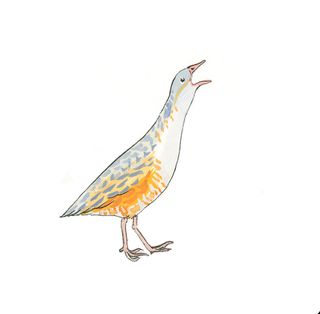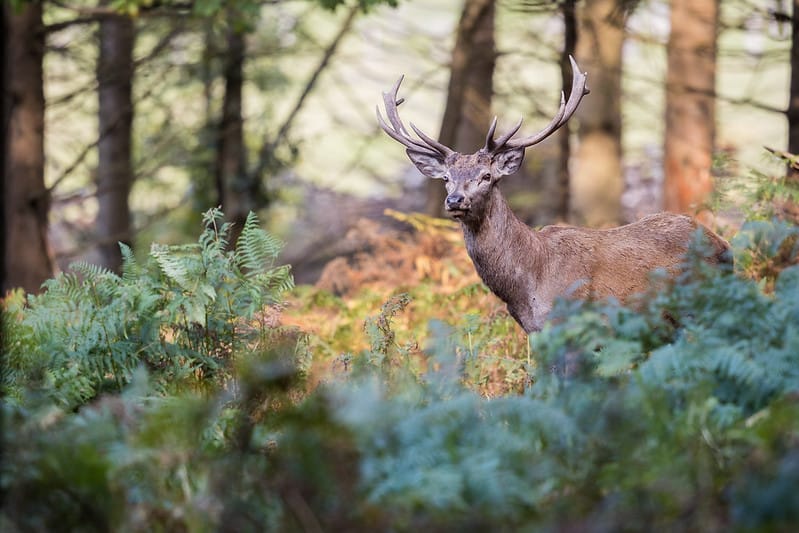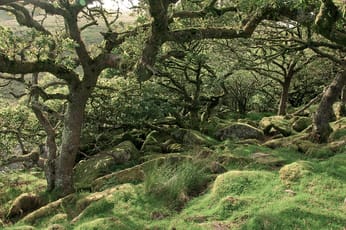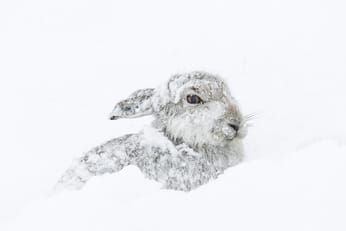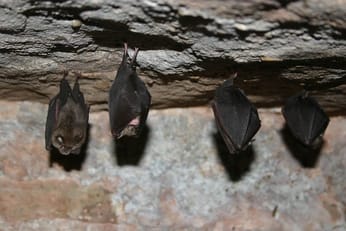
Glow Worms & Woodland Cows
The latest news on nature + conservation in the UK.
National news
Trees | Scotland planted nearly 22 million trees last year – some 80% of the UK’s total – although coronavirus restrictions and bad weather meant that it just missed its 12,000 hectare target. It did, however, reach its goal for native woodland, with 4,529 hectares created, according to the Scotsman. “Forestry will also have a key role to play in our Green Recovery, with productive conifers and native woodland helping to lock in carbon as we continue to strive to reduce our emissions to net zero,” said Fergus Ewing, the rural economy secretary.
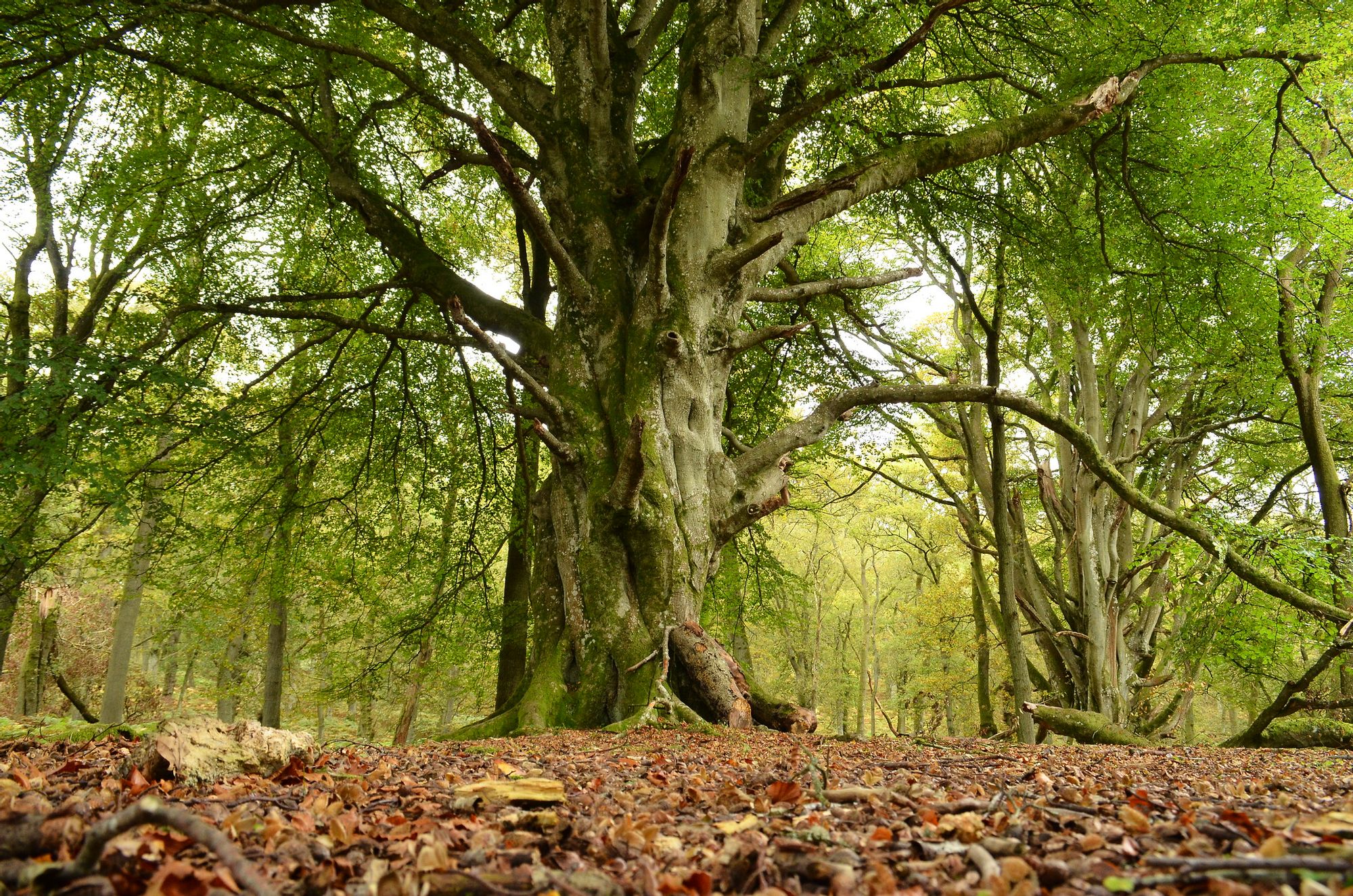
Glow worms | Ecologists are planning on releasing glow worms into the countryside, as numbers have fallen by three quarters since 2001, reports the Times. Rob Thomas, a biology lecturer at the University of Cardiff, is crowdfunding to let glow worms loose on the Devon-Cornwall border, according to the Telegraph. Separately, conservationists in the Cairngorms are planning to protect one of the UK’s rarest ants, reports the Herald.
Recovery | An RSPB poll has shown that the public supports investing in nature as part of the coronavirus recovery efforts. The survey, which was conducted by YouGov, found that 84% of people believed that the government should increase the number of accessible nature-rich areas in the UK. The Cambs Times covered the story.
In other news:
- Nature reserves are being damaged by visitors as lockdown eases. Discover Wildlife
- A rare True's beaked whale has been stranded off the British coast for the first time. The Telegraph
- A survey has placed the UK 25th out of 30 European countries for bathing water quality. Ends Report
Supertrawlers spent three times as long in the UK than anywhere else in the EU last year. The Telegraph
Across the country
Cambridgeshire | Wimpole Home Farm in Cambridgeshire has made a profit while boosting biodiversity and sequestering carbon dioxide, according to a National Trust audit of their estate, reports the BBC. The land has been farmed sustainably for the last 12 years. There are currently 95 rare species on the site and the number of skylarks has nearly doubled. While admitting that livestock caused emissions, the farm’s manager said that the animals were necessary to manage traditional hay meadows, reports ITV.
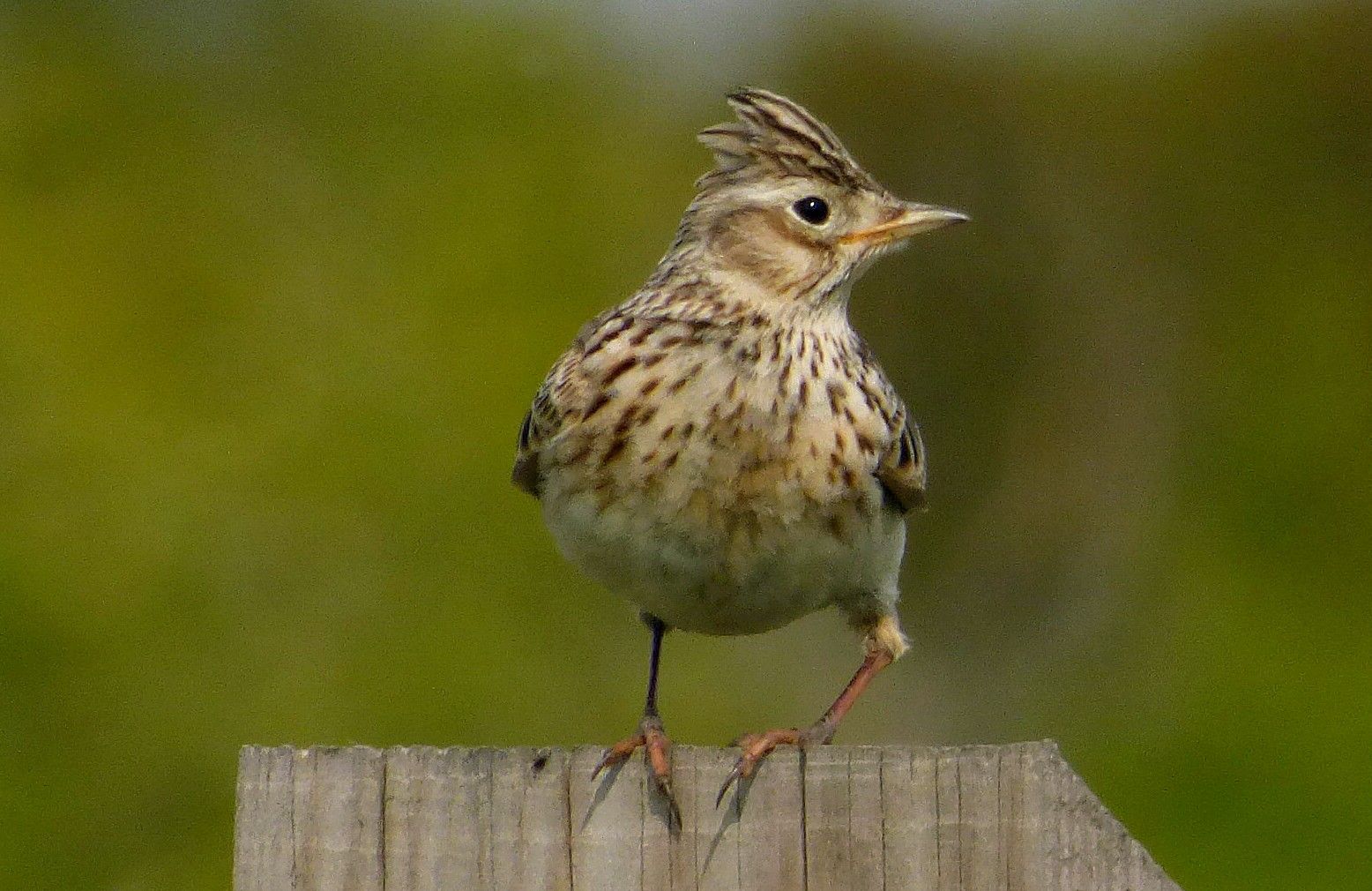
Devon | In a unique conservation project, six Dexter cows have been introduced to a woodland in Devon, including one wearing a GPS collar, to boost the ecosystem’s biodiversity. The woodland was planted in 2000 on arable land “but the wood structure lacks the variety that would help it support a wider range of plants, insects, birds and other animals,” according to the Woodland Trust. The cows’ hooves will stir up the soil, releasing and encouraging seeds to germinate and new plants to flourish, according to the grazier who supplied the cows.
South Lanarkshire | Plans to extract peat from a site near Lanark in Scotland will undermine the government’s efforts to tackle climate change, according to Pete Smith, a biologist and lead author on the IPCC report. The Ferret reports that the fertiliser multinational, ICL, has submitted a planning application to extend peat extraction for a decade from 2024, when it was due to finish.
Elsewhere:
- The Havannah Nature Reserve in Newcastle, home to red squirrels, has been badly vandalised during lockdown. BBC
- There has been a significant increase in people gathering shellfish on the Wirral shore. Cheshire Wildlife Trust
- Rare fish and insect life have returned to a section of the Ribble after a redundant weir was removed. Lancashire Post
- Sea eagles are thought to have settled permanently in the North York Moors. Yorkshire Post
Reports
Oceans | A government-commissioned review has recommended that the UK create a network of “Highly Protected Marine Areas” off the country’s coastline. In these areas, activities that harm habitats or wildlife, including fishing, construction and dredging, would be banned. Such activities are permitted in existing Marine Protected Areas, which are set up to protect a particular species or habitat, rather than taking an ecosystem-wide approach, as this blog from Natural England explains. There has already been backlash from commercial fishers, reports the Times. The government will now have to make a formal response to the recommendations.
Forests | The government has just released a lot of data and information on forests. This includes progress toward the Forestry Commission’s targets and statistics on woodland creation. In the first report, it is notable that woodland species and the percentage of people engaged in woodland were both listed as “deteriorating”. The headline number from the second report is that, in the 2019-20 financial year in England, almost 2,000 hectares of land (or around 3,281,000 trees) were newly planted with support from central government.
People in nature | Natural England has released the results of its People and Nature Survey, designed to reveal how COVID-19 is impacting people’s experience of green spaces, the effects on physical and mental health, and how people’s attitudes to nature and behaviours are changing at this time. It found that 87% of adults agreed that ‘being in nature makes me happy’ – but that only 49% had spent time in nature in the previous fortnight.
Science
Nature-based solutions | Restoring the UK’s important natural habitats could help lock away 14 million tonnes of CO2e per year, nearly a third of the country’s annual agricultural emissions, according to a new study in Biological Conservation, led by RSPB scientists. Lead author Rob Field explains the findings in a blog, and the Telegraph also wrote up the study.
Oceans | The government has just published a study on the climate benefits of the UK’s Marine Protected Areas. Some 43% of MPAs contain habitats such as sand banks, seaweed and other plant beds that play a role in protecting the coastline from severe weather events, it found, while 29% protect habitats such as coastal saltmarshes, seagrasses, salt water reedbeds and muddy habitats, which tackle climate change by storing carbon.
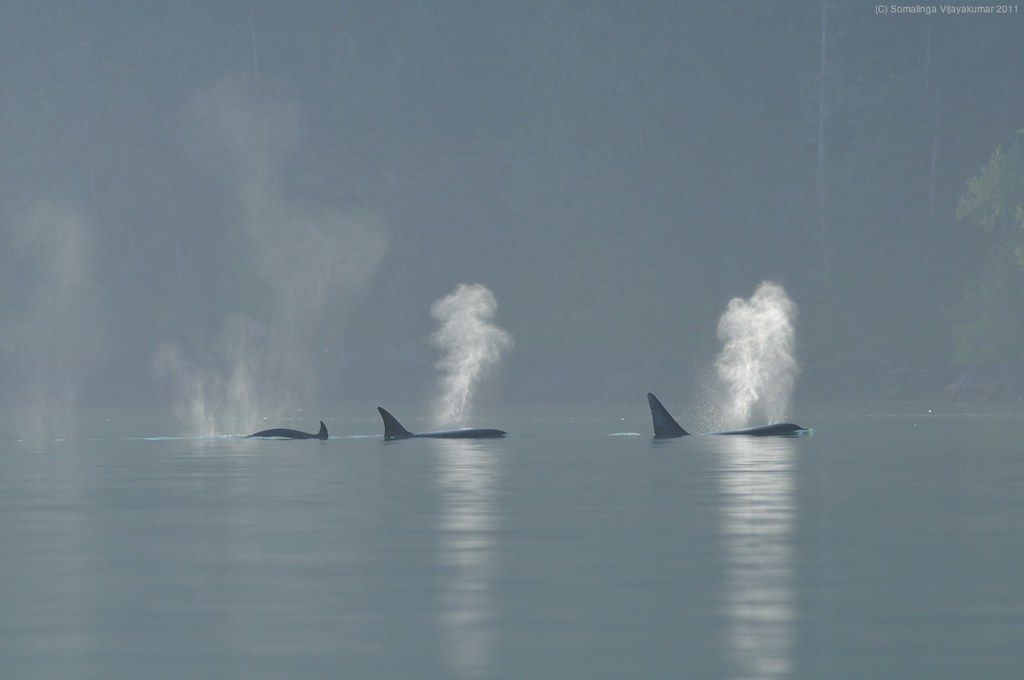
Driftwood
Hen harriers | All five of the hen harriers reared through the government’s controversial “brood management” scheme are missing and presumed dead, according to the Raptor Persecution UK blog. “One of the disappearances could be attributed to natural causes...but the other four all look highly suspicious,” it says. The scheme attempts to rear young chicks in captivity to prevent killings of hen harriers on grouse moors.
Policy | While the focus in recent months has been on legislation targeting the COVID response, the UK’s nature bills are still important, including the Environment Bill, writes Martin Harper, director of global conservation at the RSPB. “This Bill is too important to rush, so the sooner it returns the better. And it must then be strengthened,” he says. The Agriculture Bill is currently going through the House of Lords; Rewilding Britain has a blog outlining its priorities for the legislation.
Forests | The Forestry Commission has released a “climate matching tool” – an interactive map that tells you which area of Europe currently resembles your future climate. They say that it’s to help forest practitioners “consider the selection of seed from trees that are growing successfully in an environment that England’s may look like in the future” but I can assure you it’s also pretty good for procrastinating in the afternoon. Apparently by 2079, London’s climate will be like today’s western France.
Further reading:
- The RSPB is on a mission to save the Wilkins’ bunting, a species that only lives on one island and is at risk from an invasive insect. RSPB
- Three new non-executive commissioners have been appointed to the Forestry Commission. Defra
- Losing Eden author Lucy Jones looks at the connections between nature, mental health and climate change. Vogue
- Chris Packham talks about COVID-19 and the natural world. The Guardian
- Cambridge professor Ian Hodge looks at the Glover report on national landscapes. ECOS
- Conservationists are looking into how the rare Alcathoe bat uses the landscape. North York Moors
Happy days
Ospreys | There are ospreys galore at Kielder Water in Northumberland. At least 11 chicks have hatched and are doing well, according to the Northumberland Wildlife Trust, while 2020 has also been the best year ever for returning ospreys. Meanwhile, in Wales, osprey chicks were filmed hatching on camera. Cute!
Image credits: Hefin Owen, Stuart Anthony, Pete Beard, Vijay Somalinga
Subscribe to our newsletter
Members receive our premium weekly digest of nature news from across Britain.
Comments
Sign in or become a Inkcap Journal member to join the conversation.
Just enter your email below to get a log in link.

